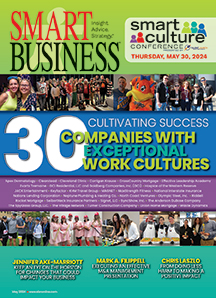That was critical. When you’re trying to determine your identity in order to expand and plan for the future, you don’t want to take anything for granted.
Hennigan points to other urban universities that failed to think ahead and made a nuisance of themselves in their urban locations. He certainly didn’t want that to happen in downtown Pittsburgh.
The Urban Land Institute was brought in to assemble a national panel of about 150 community stakeholders and solicit its advice.
“We really did not know whether or not we would have the support of the community to expand and create this urban university,” Hennigan says. “As a matter of fact, there were rumblings at the time about trying to keep students out of downtown Pittsburgh. But when we brought the community together for that planning process and we got the endorsement, then that’s how we decided to take what we had and give it an identity.”
That shot in the arm of confidence ultimately led to an ambitious vision — the Academic Village.
Ambitious vision, incremental steps
Once your organization has stakeholder buy-in and a good handle on its identity, it’s time to lay out your vision. Hennigan says you can have an ambitious vision, but you must be very incremental in its pursuit.
The announcement about the Academic Village was a head turner for many people because of its $244 million development price tag, but it’s important to recognize the cost was spread over 10 to 15 years.
When you break the cost down into smaller, bit-sized pieces — somewhere between $15 and $25 million a year of capital expenditures — it’s a lot more palatable.
“You can swing for the fences with the vision, but in terms of implementation, my advice would be to be very incremental in a discreet, finite kind of a way,” Hennigan says.
That meticulous level of planning, he says, should be incorporated into everything you do — all of the day-to-day activities around implementing your plan. They are not separate approaches.
“We highly value planning, but we don’t plan for the sake of planning,” Hennigan says. “We plan, and then we do.”
Another benefit of a deliberate, incremental plan is that it allows you to react to changes quickly, so that the plans reflect whatever new reality comes to pass.
For example, in 2008, the collapse of the financial markets had a huge impact on higher education and, not coincidentally, Point Park.
People could no longer pull as much equity out of their real estate to finance their children’s education. The cost of higher education and that financial pressure also sharply increased the number of online higher education providers on the market.
Hennigan says they talked about slowing down or even stopping the development plan, taking time to put every option on the table.
“I don’t think anybody had a clear sense of what was on the other side of that crisis and when that crisis was going to end,” he says. “Yeah, we were afraid of a lack of students, a lack of financing, a lack of students being able to finance their education — there were a lot of things that we were really worried about.
“Most people — including me — had never lived through any financial crisis as dire as that was,” Hennigan says.

